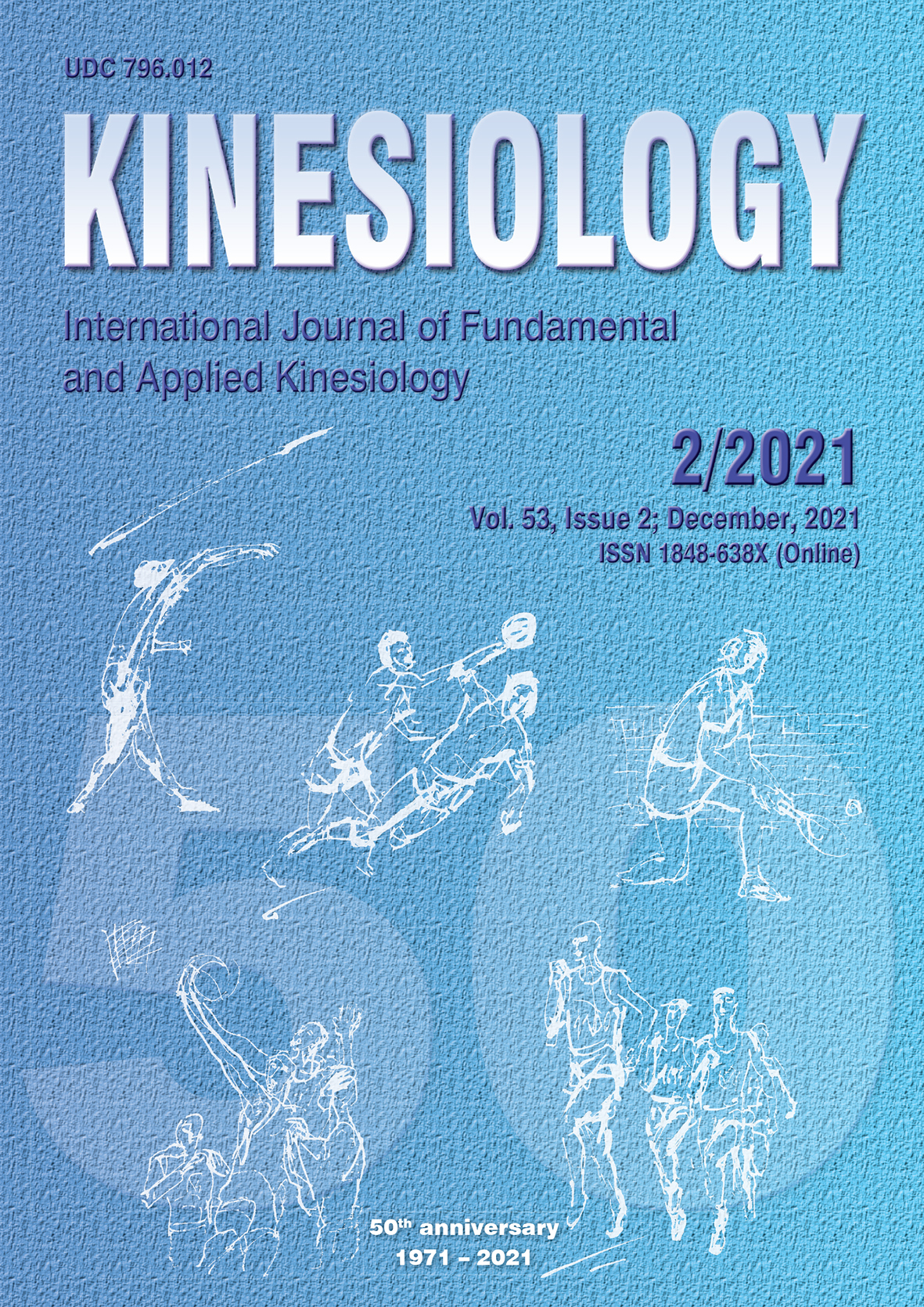EFFECTS OF CAFFEINE, BEETROOT JUICE AND ITS INTERACTION CONSUMPTION ON EXERCISE-RELATED FATIGUE
Abstract
The aim of this study was to analyze the effect of different supplementation conditions on fatigue and performance in flywheel half-squat tests in senior men. Sixteen active males (age: 22.8±4.9 years; body mass index: 23.7±2.4 kg*m-2) participated in the intervention during a 4-week period. Four experimental conditions were established using a double-blind design: placebo, caffeine (CAF), beetroot juice (BRJ), and combined BRJ+CAF. To assess the effect of supplementation, participants completed a countermovement jump (CMJ) before (Pre), 30 s after (Post-30s) and 180 s after (Post-180 s) completing a flywheel half-squat exercise protocol (four sets of eight all-out repetitions, with a 3-min inter-set rest, using different inertial loads). Additionally, the mean power output during the flywheel half-squat protocol was recorded. A repeated measures ANOVA showed greater mean power (~1000 W, p<.001) produced in flywheel exercise after the CAF, BRJ and BRJ+CAF consumption compared to the placebo condition. After placebo, CAF and BRJ, CMJ performance at Post-180 s was reduced compared to Pre (p=.003-.087, two-way ANOVA; ES=-0.39/-0.49), although no significant performance reduction (p=.087) was noted after BRJ+CAF. In conclusion, compared to placebo, CAF, BRJ, and BRJ+CAF allow greater total mean power in the flywheel half-squat power test, although without effects on exercise-related fatigue. Additionally, BRJ+CAF improved recovery after a high demanding power-production protocol.
Key words: nutritional ergogenic aids, athletic performance, plyometric exercise, muscle fatigue, resistance training
Downloads
Published
How to Cite
Issue
Section
License

This work is licensed under a Creative Commons Attribution-NonCommercial 4.0 International License.
At Faculty of Kinesiology we recognize that access to quality research is vital to the scientific community and beyond. Kinesiology is non-profit journal and all costs of publishing and peer review process are covered by the publisher itself or other funding sources like Ministry of Science and Education of the Republic of Croatia. Full text papers are also available free of charge at http://hrcak.srce.hr/kineziologija. There are no restrictions on self archiving of any form of paper (preprint, postprint and publisher's version).
Articles are distributed under the terms of the CC BY - NC 4.0
Kinesiology does not charge any fees to authors to submit or publish articles in our journal.


